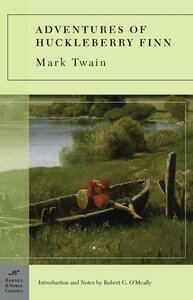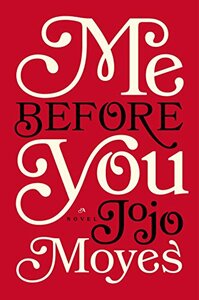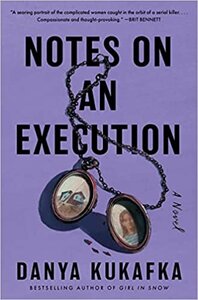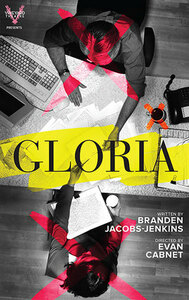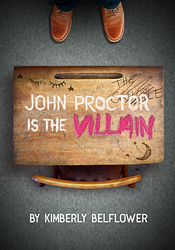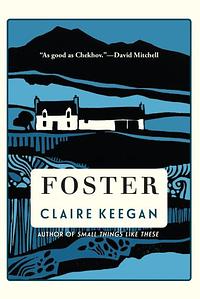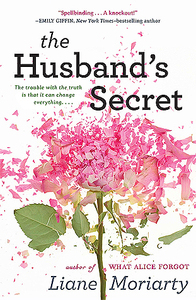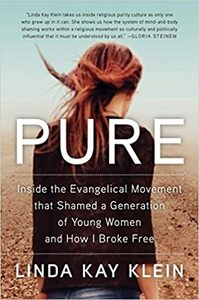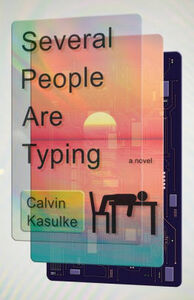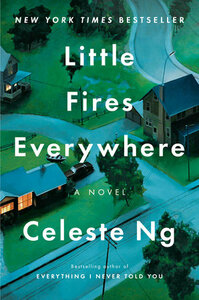You need to sign in or sign up before continuing.
Take a photo of a barcode or cover
dontjudgeabrooke's Reviews (192)
I basically only read this as a precursor to reading James. Still, it was more fun than I expected it to be and it even kinda satisfied my recent hankering for an adventure story.
However, the last few chapters (once Tom Sawyer gets involved) are a bit of a slog and totally throw off the pace set by the rest of the book. It feels like the action, which is pretty nonstop up to this point, grinds to a halt and never resumes. And these chapters make up a sizable chunk — about a quarter — of the book. I get that Twain may have done this intentionally; as the intro of the edition I read notes, "The book slows down, then, to suggest the miserable slowness of the process of gaining black freedom in America — stuck in a mire of what might be termed Tom Sawyerism.” I can appreciate this type of satire if it was intentional, but it nonetheless made finishing the book kind of a drag.
Also, as a minor side note, it bothered me that after all the time and effort invested ingetting rid of the duke and the king, Huck and Jim are suddenly rid of them with little fanfare or involvement.
Quote that spoke to me:
However, the last few chapters (once Tom Sawyer gets involved) are a bit of a slog and totally throw off the pace set by the rest of the book. It feels like the action, which is pretty nonstop up to this point, grinds to a halt and never resumes. And these chapters make up a sizable chunk — about a quarter — of the book. I get that Twain may have done this intentionally; as the intro of the edition I read notes, "The book slows down, then, to suggest the miserable slowness of the process of gaining black freedom in America — stuck in a mire of what might be termed Tom Sawyerism.” I can appreciate this type of satire if it was intentional, but it nonetheless made finishing the book kind of a drag.
Also, as a minor side note, it bothered me that after all the time and effort invested in
Quote that spoke to me:
- That's just the way: a person does a low-down thing, and then he don't want to take no consequences of it. Thinks as long as he can hide it, it ain't no disgrace.
*Listened to audiobook
The Best Friend Reading Challenge: Enemies-to-lovers and/or romance
Pay no attention to the amount of time between when I started this book and when I finished it.
Over the past few years I've tried several of the most raved-about romance novels in hopes I'd find one that *clicks* for me, to no avail. They've all struck me as cartoonish and hollow, so far removed from real life as to render them completely unappealing (and I say this as a fan of musicals and Disney movies).
Until this one. Somehow, this one finally managed to be what I was looking for in a romance, even though I still can't put my finger on those requirements myself. My best guess is it's some mix of the Beauty and the Beast-esque narrative, the authentic-feeling characters, the boatload of angst, the (very) bittersweet ending — and the fact that the romance itself is so decentered.
In all the other romance books I've read, the stories feel flimsy and threadbare because the love story is all there is. Sure, they may throw in a disease, issues with parents, or some other past trauma, but those always feel like paltry attempts to make the plot seem more substantial than it is — insufficient fabric wrapped around the same old story that's been told a million times before.
The romance in this book honestly makes up about 10% of the plot, if that. It feels incidental. I could even imagine the book feeling just as complete if the love story had been stripped out entirely and Will and Lou's relationship had remained platonic, something that absolutely cannot be said for most other romances.
And yet it's not lost on me that the first and only romance novel that's ever worked for me is also very controversial and potentially harmful, which is why I've lowered the star rating. As someone who's had little experience with disability in my own life, I don't feel informed enough to speak to the issues with this depiction. I certainly don't believea disabled life isn't a life worth living. However, since I've personally struggled with suicidal thoughts in the past, I feel I likely have a more nuanced and generous view of assisted suicide than the general population, which makes my thoughts on the narrative even more discordant .
Obviously, I'm coming away from this book with conflicting thoughts — but coming away from it with any thoughts at all is more than I can say for the other romances I've read.
Pay no attention to the amount of time between when I started this book and when I finished it.
Over the past few years I've tried several of the most raved-about romance novels in hopes I'd find one that *clicks* for me, to no avail. They've all struck me as cartoonish and hollow, so far removed from real life as to render them completely unappealing (and I say this as a fan of musicals and Disney movies).
Until this one. Somehow, this one finally managed to be what I was looking for in a romance, even though I still can't put my finger on those requirements myself. My best guess is it's some mix of the Beauty and the Beast-esque narrative, the authentic-feeling characters, the boatload of angst, the (very) bittersweet ending — and the fact that the romance itself is so decentered.
In all the other romance books I've read, the stories feel flimsy and threadbare because the love story is all there is. Sure, they may throw in a disease, issues with parents, or some other past trauma, but those always feel like paltry attempts to make the plot seem more substantial than it is — insufficient fabric wrapped around the same old story that's been told a million times before.
The romance in this book honestly makes up about 10% of the plot, if that. It feels incidental. I could even imagine the book feeling just as complete if the love story had been stripped out entirely and Will and Lou's relationship had remained platonic, something that absolutely cannot be said for most other romances.
And yet it's not lost on me that the first and only romance novel that's ever worked for me is also very controversial and potentially harmful, which is why I've lowered the star rating. As someone who's had little experience with disability in my own life, I don't feel informed enough to speak to the issues with this depiction. I certainly don't believe
Obviously, I'm coming away from this book with conflicting thoughts — but coming away from it with any thoughts at all is more than I can say for the other romances I've read.
The Best Friend Reading Challenge: Book with a cover in your favorite color
Intriguing concept, but this wasn't emotionally engaging or thought provoking in the way a story like this should be. It's loaded with purple prose, for which I'm realizing my distaste more and more the older I get, especially when it's seemingly employed to pad out the story and cover up a lack of substance (as in this case). And based on the amount of times someone's "sour breath" was mentioned, everyone in this book is evidently in dire need of a breath mint.
An example of both these complaints in action: "Your mother's breath was sour and sweet, like a dream interrupted halfway through. She held you by the ribs as comets shot across the sky. It is a comfort to know that once, you were little enough to be cradled. Once, there was only wheatgrass and wonder, the earth turning ordinary beneath the train of your spine."
Intriguing concept, but this wasn't emotionally engaging or thought provoking in the way a story like this should be. It's loaded with purple prose, for which I'm realizing my distaste more and more the older I get, especially when it's seemingly employed to pad out the story and cover up a lack of substance (as in this case). And based on the amount of times someone's "sour breath" was mentioned, everyone in this book is evidently in dire need of a breath mint.
An example of both these complaints in action: "Your mother's breath was sour and sweet, like a dream interrupted halfway through. She held you by the ribs as comets shot across the sky. It is a comfort to know that once, you were little enough to be cradled. Once, there was only wheatgrass and wonder, the earth turning ordinary beneath the train of your spine."
I did appreciate the way the author made it clear there's nothing exceptional about Ansel, that contrary to his own belief, he's not some sort of rare genius who can see things in a way no one else can, that he's not even particularly smart, that "his pain looked just like everyone else's. The difference lay in what he chose to do with it." But for the most part, this felt fairly predictable and hollow, and I may have DNFed if I hadn't been reading it for a challenge.
Quote that spoke to me:
- Saffy recognized the monster in her own body. A wild creature, reaching out hungry, starving for annihilation. She glimpsed that same craving in Jenny Fisk — an ask, for suffering. It was the scariest thing about being a woman. It was hardwired, ageless, the part that knew you could have the good without the hurt, but it wouldn’t be nearly as exquisite.
*Listened to audiobook
Another play read on Carley Thorne's recommendation. An interesting mix of commentary on the soullessness of corporate culture and the exploitative ways people capitalize on tragedy, but didn't land quite as hard with me as I would've liked it to. I think seeing it in person would probably be much more effective.
"It shouldn't take being scary to make things different. They shouldn't have to be scared into listening to us. Things should just be different. They should just listen."
Haven't read any plays in a minute, but Carley Thorne sold me on this one and I'm very glad she did. Every high school curriculum that features The Crucible should be required to supplement it with this. Very tempted to make the trek to NYC to see the Broadway premiere with Sadie Sink. The ending monologue/sequence made me burst into tears just reading it on the page, which is a rarity with any type of literature. And it's fitting that it ends with a song (Lorde's "Green Light") that I adore and that my terrible, terrible ex-boyfriend disparaged whenever I listened to it around him. Might be my favorite straight play I've ever read/seen.
Haven't read any plays in a minute, but Carley Thorne sold me on this one and I'm very glad she did. Every high school curriculum that features The Crucible should be required to supplement it with this. Very tempted to make the trek to NYC to see the Broadway premiere with Sadie Sink. The ending monologue/sequence made me burst into tears just reading it on the page, which is a rarity with any type of literature. And it's fitting that it ends with a song (Lorde's "Green Light") that I adore and that my terrible, terrible ex-boyfriend disparaged whenever I listened to it around him. Might be my favorite straight play I've ever read/seen.
The Best Friend Reading Challenge: Book that's been or will be adapted to film
Love Claire Keegan's perfectly spare writing, but this didn't impact me quite as much as Small Things Like These. This is a story I feel I've heard several times before with only slight variations, so I knew where we were headed from the outset. Still, if you're looking for something to read in a day, you could hardly find better.
Quotes that spoke to me:
Love Claire Keegan's perfectly spare writing, but this didn't impact me quite as much as Small Things Like These. This is a story I feel I've heard several times before with only slight variations, so I knew where we were headed from the outset. Still, if you're looking for something to read in a day, you could hardly find better.
Quotes that spoke to me:
- It is something I am used to, this way men have of not talking: they like to kick a divot out of the grass with a boot heel, to slap the roof of a car before it takes off, to spit, to sit with their legs wide apart, as though they do not care.
- I am in a spot where I can neither be what I always am nor turn into what I could be.
- He takes shorter steps so we can walk in time. I think about the woman in the cottage, of how she walked and spoke, and conclude that there are huge differences between people.
- She wants to find the good in others, and sometimes her way of finding that is to trust them, hoping she’ll not be disappointed, but she sometimes is.
- Many’s the man lost much just because he missed a perfect opportunity to say nothing.
- Do you know what the women have a gift for? … Eventualities. A good woman can look far down the line and smell what’s coming before a man even gets a sniff of it.
The Best Friend Reading Challenge: A New York Times Best Seller from the year we graduated high school
There are so many secrets about our lives we'll never know.
As someone who's discovered more unsettling secrets about a loved one in the past couple years than I'd ever been prepared to in the course of my lifetime and is still actively working through the resulting betrayal trauma, this book was honestly a little difficult and even triggering to read at times — but I've been trying not to hold that against it.
I will say, though, that I found the titular secret and the story behind it to be a bit lackluster and less scandalous than the summary and the lead-up to the reveal implied. It might be my fault for being desensitized, but I guess I was hoping for something more gruesome, harder to guess, and just… chewier? As it was, I thought the interpersonal dynamics explored throughout were much more interesting than the secret itself.
Overall, it's an entertaining story, but after a certain point it got fairly repetitive; I think the page length could've been trimmed down quite a bit. Also, as I previously noted in my review of The Girl on the Train, I continue to be appalled at the unrestrained fatphobia that seems to run rampant in Australian and British media. This book contains the following actual sentence: "It was as though she'd thought that Felicity's fatness cushioned her feelings, as though she believed that Felicity must surely know and accept that no ordinary man could really love her!" I mean, oof.
And one last note — I followed along with the Kindle copy as I listened to the audiobook, and I've never known the physical and audiobook editions to differ so significantly. Names were changed, sentences and paragraphs were added/omitted/rearranged, and in the most glaring instance, an entire chapter was deleted from the Kindle version.
There are so many secrets about our lives we'll never know.
As someone who's discovered more unsettling secrets about a loved one in the past couple years than I'd ever been prepared to in the course of my lifetime and is still actively working through the resulting betrayal trauma, this book was honestly a little difficult and even triggering to read at times — but I've been trying not to hold that against it.
I will say, though, that I found the titular secret and the story behind it to be a bit lackluster and less scandalous than the summary and the lead-up to the reveal implied. It might be my fault for being desensitized, but I guess I was hoping for something more gruesome, harder to guess, and just… chewier? As it was, I thought the interpersonal dynamics explored throughout were much more interesting than the secret itself.
Overall, it's an entertaining story, but after a certain point it got fairly repetitive; I think the page length could've been trimmed down quite a bit. Also, as I previously noted in my review of The Girl on the Train, I continue to be appalled at the unrestrained fatphobia that seems to run rampant in Australian and British media. This book contains the following actual sentence: "It was as though she'd thought that Felicity's fatness cushioned her feelings, as though she believed that Felicity must surely know and accept that no ordinary man could really love her!" I mean, oof.
And one last note — I followed along with the Kindle copy as I listened to the audiobook, and I've never known the physical and audiobook editions to differ so significantly. Names were changed, sentences and paragraphs were added/omitted/rearranged, and in the most glaring instance, an entire chapter was deleted from the Kindle version.
Quotes that spoke to me:
- This was how you lived with a terrible secret. You just did it. You pretended everything was fine… You somehow anesthetized yourself so that nothing felt that bad, but nothing felt that good either.
- You could spend your whole life looking at the people you loved in an oblique, halfhearted way, as if you were deliberately blurring your vision, until something like this happened, and then just looking at that person could be terrifying.
- Falling in love was easy. Anyone could fall. It was holding on that was tricky.
- That was why the sex had been so good with Connor: because they were essentially strangers. It was his otherness. It made everything — their bodies, their personalities, their feelings — seem more sharply defined, and therefore superior. It wasn't logical, but the better you knew someone, the more blurry they became. The accumulation of facts made them disappear. It was more interesting wondering if someone did or didn't like country music than knowing one way or the other.
- They could fall in love with fresh, new people, or they could have the courage and humility to tear off some essential layer of themselves and reveal to each other a whole new level of otherness, a level far beyond what sort of music they liked. It seemed to her everyone had too much self-protective pride to truly strip down to their souls in front of their long-term partners. It was easier to pretend there was nothing more to know, to fall into an easygoing companionship.
*Listened to audiobook
I read this on the recommendation of a friend who shared a similar religious upbringing to mine and who, like me, has also spent the past few years disassembling her faith and figuring out which parts of it she wants to keep and which parts are better left in the past. I certainly think this book would be massively helpful for anyone starting out on their deconstruction journey or anyone who's experienced sexual shame as a result of religion and is looking to kickstart their healing process.
However, I think I'm a little too far into my deconstruction journey to get as much out of this book as I might have. Also, although I participated in purity culture at the height of my religiosity — I did attend "Silver Ring Thing" and wore the accompanying ring on a daily basis for a long time afterward — at my core, I never 100% bought into the sex-shaming practices of the church.
I did suffer quite a bit as a result of loved ones and others around me who did buy in, but even as a teenager I thought the chewed-up-gum metaphor was wrongfully demeaning, the abstinence-only sex ed programs were woefully naive, and that the church sorely needed to reevaluate its stance on sex and sexuality. But I'm very glad this book exists as a resource for those who find themselves at a pivotal point in their healing journey.
Quotes that spoke to me:
However, I think I'm a little too far into my deconstruction journey to get as much out of this book as I might have. Also, although I participated in purity culture at the height of my religiosity — I did attend "Silver Ring Thing" and wore the accompanying ring on a daily basis for a long time afterward — at my core, I never 100% bought into the sex-shaming practices of the church.
I did suffer quite a bit as a result of loved ones and others around me who did buy in, but even as a teenager I thought the chewed-up-gum metaphor was wrongfully demeaning, the abstinence-only sex ed programs were woefully naive, and that the church sorely needed to reevaluate its stance on sex and sexuality. But I'm very glad this book exists as a resource for those who find themselves at a pivotal point in their healing journey.
Quotes that spoke to me:
- On the Romans 14 verse that's been used as justification for the whole "stumbling block" idea: Look a little earlier in the chapter and it becomes clear that Paul's larger point is that we should spend less time judging others' choices as right or wrong — arguing that a multiplicity of choices can honor the Lord depending on the heart of the individual — and that we should spend more time loving one another.
- Art was ongoing. It was as much about the way the artist projected her voice when she yelled at her neighbor to turn down his music, or grumbled into her coffee in the morning, as it was about what she did onstage. Real art couldn't stop and start any more than life could. So either I was that little girl apologizing on Blue's answering machine, or I was the artist who knew how to sing from a place so low it made her gut shake. I could be either. But I couldn't be both.
- Somehow, purity culture has turned a pornographic fantasy about a virgin turned vamp into "morality," so that now both a woman's nonsexuality before marriage and her hypersexuality after marriage are required for her to be considered good.
- Most of my interviewees eventually have come to the conclusion that the binary itself is the problem. From here, they become uniquely sensitized to fundamentalism in all forms, distrusting any community that claims they have all the answers, that assumes they are all right and that those they oppose are all wrong.
- God is above gender. He sometimes expresses himself as a mother in the Bible. And so we are the image of God most fully when we are together as one. Equal.
- I am still a Christian, but I don't go to church much anymore… I can't bring myself to attend a church that teaches purity culture and other things that I know hurt people as deeply as they do, and when I attend progressive churches I sometimes find myself thinking I may as well be at home watching a TED Talk.
Very fun, super quick read that anyone who's ever used Slack for work will get a kick out of. Feels like it could be a sister novel to No One Is Talking About This.
Quotes that spoke to me:
Quotes that spoke to me:
- It's not just the light
quotidian beauty like [that of a sunset] defies comprehension
it frustrates the eye.
Majesty that predictable is impossible to grasp, I think
so it's impossible to focus your vision on it for too long.
It's why when you go to the Grand Canyon you wind up spending more time ogling the alien foliage and monitoring the aggressively panhandling squirrels than actually admiring the canyon
because at a certain point it's too difficult to look at. - I get completely absorbed in… a minor northeastern city's Facebook group dedicated to the town's "fallen soldiers" (they don't explain what qualifies someone as a fallen soldier but I get the sense it's maybe overdoses) populated with a steady stream of cellphone pictures and snapshots of photographs, actual Polaroid photographs of the recently dead posing in Slavic squats beside the recently mourning with "I miss you" scrawled across them in marker and "never thought I'd have to bury you" in the comments, a dirge scrawled across the bathroom stall of human consciousness right there for me to gaze upon until I just can't anymore, I just can't it's too much it hurts or worse it doesn't hurt but it should, somehow, I mean that kind of pain should hurt a person, it should cause physical pain in their body so I flinch at where the pain isn't and I click away from the fallen soldiers and check my email and turn up Spotify by one, two bars.
- We love to say the digital is fleeting
like a sunset
but these scraps of ourselves we fling into the ether will outlive most of us, like the sun. - It’s overwhelming for a species that was basically content with an oral tradition of a handful of long-ass stories about the same six shitty gods for millennia
now we can do all this knowing and empathizing and not-empathizing around innumerable tiny human stories and we can never fully succeed reprogramming our minds to get good at it. - We keep forgetting to preserve things
because it's just there every day and why would anyone want to remember last week's internet -- and we don't, but we want to remember the fifteen-years-ago internet and that was last week's internet, once.
The Best Friend Reading Challenge: A book set in Ohio or written by an Ohioan
I really enjoyed this book for what it was, especially because I currently live ~15 minutes away from where it takes place and this is one of those books where the setting really does feel like another character.
However, there were several plot points that were implausible enough to take me out of the story a bit(Bebe catching a last-minute flight to China despite having no money or passport for her baby, Mia refusing money from Pauline, Mia never talking to her parents again after Warren's funeral even though the reason they stopped talking had been her "selling" her baby, Elizabeth conveniently having to leave the room just long enough for Elena to look at the clinic records, Lexie using Pearl's name at the clinic, Mrs. Peters refusing to use the students' bathroom for hours until she soils herself, etc) .
I really appreciated the overall nuance and complexity of the characters and their world; Ng is really talented at creating a fully fleshed-out image. But there were a couple moments in which I wasn't sure I sided with the characters Ng seems to want the reader to side with.I'm mainly referring to Mia's decision to lie to the Ryans and go on the run with Pearl. There was no indication prior to this decision of Mia having any desire to be a mother; getting pregnant seemed like something she did purely out of financial necessity. Her decision rubbed me the wrong way, and I mostly just found myself hoping the Ryans found a way to have the child they so badly wanted.
Side note: The show is probably one of the worst book-to-screen adaptations I've ever seen. Characters, storylines, and motivations are butchered left and right, especially everything regarding Mia's character. Where the book (mostly) gets its points across with subtlety and restraint, the show clumsily hits you over the head with them.
*Listened to audiobook
I really enjoyed this book for what it was, especially because I currently live ~15 minutes away from where it takes place and this is one of those books where the setting really does feel like another character.
However, there were several plot points that were implausible enough to take me out of the story a bit
I really appreciated the overall nuance and complexity of the characters and their world; Ng is really talented at creating a fully fleshed-out image. But there were a couple moments in which I wasn't sure I sided with the characters Ng seems to want the reader to side with.
Side note: The show is probably one of the worst book-to-screen adaptations I've ever seen. Characters, storylines, and motivations are butchered left and right, especially everything regarding Mia's character. Where the book (mostly) gets its points across with subtlety and restraint, the show clumsily hits you over the head with them.
*Listened to audiobook
